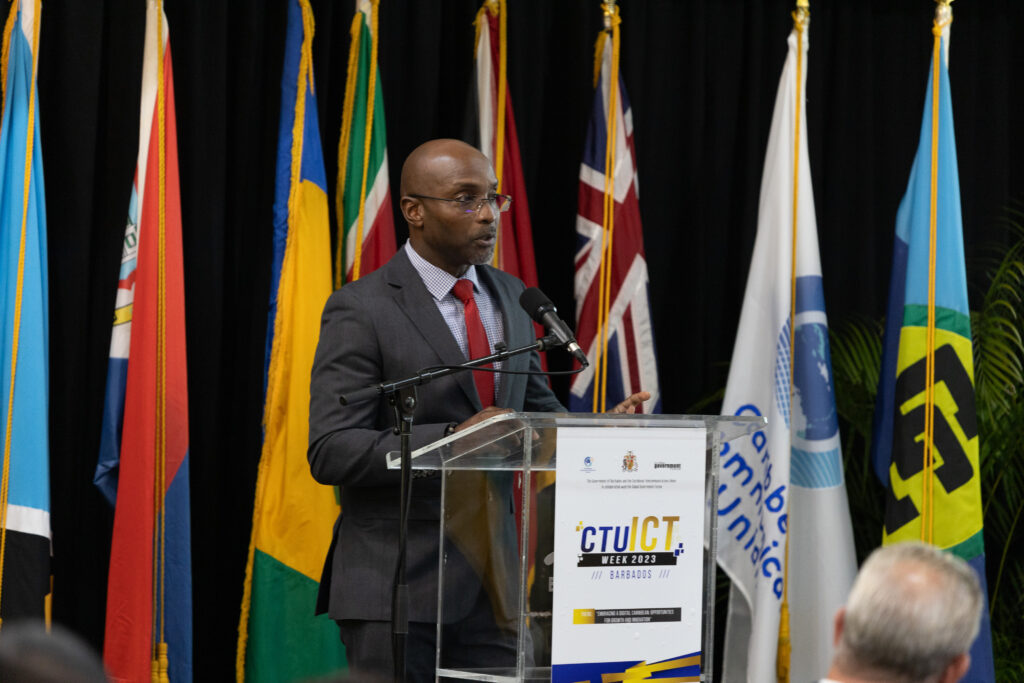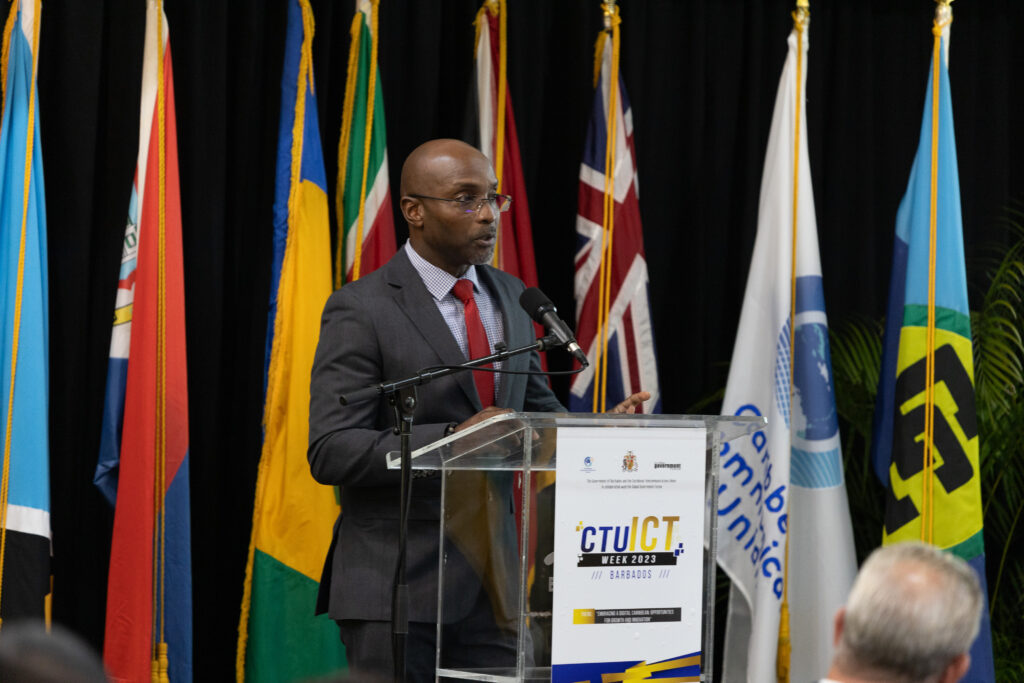
Dr. the Hon. William F. Duguid, Senior Minister in the office of the Prime Minister
Honourable Davidson Ishmael, Minister of Industry, Innovation, Science and Technology, MIST
Members of the Cabinet of Barbados
Members of the General Conference of Ministers of the CTU
Members of the Diplomatic Corps and Heads of Regional and International Organizations
Permanent Secretaries and other Senior Government Officials
Mr. Kevin Cunnington, Export Advisor, Global Government Forum
Specially Invited Guests
Delegates
Sponsors
Members of the Media
Distinguished Ladies and Gentlemen
Firstly, let me start by saying that I do not envy any of you in the room here today who are tasked with the responsibility of developing, implementing or managing ICT strategies for your respective Governments! I used to do it, and I don’t miss it for one day! It is a difficult job! It is a tireless job and chances are you are not paid enough. My journey as an ICT professional started in the Barbados Immigration Department around 1993/94 when they introduced a Border Management System and digitized piles and piles of paper records, including passports, citizenship, ED forms, work permits and others. Can you picture a time when every single passport record was hand written in a book? I know I’m dating myself but the truth is there are still many processes in government today that are paper-based. You would be very shocked!
I should commend the Government for its efforts since establishing the Ministry Minister of Industry, Innovation, Science and Technology, MIST and embarking on the Public Sector Modernisation Programme. But we all know there is substantially more work to be done.
In today’s environment, one of the most pressing challenges is to keep pace with rapidly changing technology. There is a constant state of flux, with new tools, platforms, and innovations emerging almost daily. AI, for example, artificial intelligence, is opening a world of new possibilities for public service delivery.
Staying up to date with the latest developments is not only challenging but also critical for ensuring that government services remain efficient, secure, and accessible to all citizens.
Another significant challenge you face is the area of cybersecurity. As governments increasingly digitize their operations, they become prime targets for cyberattacks. The sheer volume and sophistication of these attacks are a constant concern for digital leaders in the public sector. The consequences of a successful breach can range from the theft of sensitive citizen data to disruption of essential services, potentially endangering public safety. As cyber experts will tell you, its not a question of IF but a question of WHEN your systems will be breached and what is your state of readiness to respond.
Data privacy is yet another major challenge. As governments collect and store vast amounts of personal information, they must navigate a delicate balance between using this data to improve services and protecting citizens’ privacy. You must ensure that data is collected, managed, and used in a way that respects individual privacy rights.
The digital divide is also an issue. Not all citizens have equal access to the digital tools and services offered by the public sector and therefore, how do you bring them along and make them comfortable. Very recently the CTU signed an MOU with the Universal Postal Union aimed at fostering greater collaboration between digital and postal services because post offices can play a key role as service bureaus, one stop shops as it were, for public services. We have a representative from the UPU who will be here this week to address the Ministers on this topic. One of the projects I was very pleased to have worked on is the online renewal of the Barbados Driver’s license and the partnership with the Barbados Postal Service to deliver those licences to the homes and offices of Barbadians. It was a big hit!
Bridging the digital divide is not only an issue of equity but also a fundamental matter of inclusivity. Government leaders must work to ensure that their digital services are accessible to all citizens, regardless of their socioeconomic status or technological proficiency. This requires investment in digital infrastructure, digital literacy programs, and strategies to make public services available on multiple platforms. Again on Friday we will host a workshop for persons with disabilities under the theme ICTs for All.
There is also the issue of financial constraints. While I worked with MIST I was constantly banging my head against the wall because we simply could not afford to fill many of the vacancies that I felt were critical to the successful implementation of the Government’s ICT strategy. Cyber security specialist, data scientists, etc. The fact is that the private sector pays better! In addition, the reality is that you are competing for limited resources, with other areas such as health care, public transport, renewable energy, etc and have to make a very convincing case as to why you need X dollars and what the benefits of that investment will be to the country. I used to attend with great fear and trepidation, the Estimates Meetings with the Minister of Finance.
Lastly, there is the challenge of culture and workforce. Transforming a traditionally bureaucratic and risk-averse government into a more agile and innovative digital entity is no small feat. It requires not only the adoption of new technologies but also a cultural shift. Public sector leaders must inspire and empower their workforce to embrace change, adapt to new technologies, and embrace innovation. This often involves retraining employees and promoting a culture of experimentation and learning.
In summary, your role is a critical one as it relates to the future development of your respective countries. It is not one that you should take lightly. I think I started by saying that I don’t envy you.
But at the same time, I am pleased that we are able to come together to discuss these issues collectively, share common experiences and learn from each other. So let me express my sincere appreciation to the Global Government Forum for this collaboration during ICT Week. When its all said and done I hope that you feel more empowered to do your job and that you expand your network so that the collaboration can continue beyond this week.
Ladies and gentlemen, I thank you.


